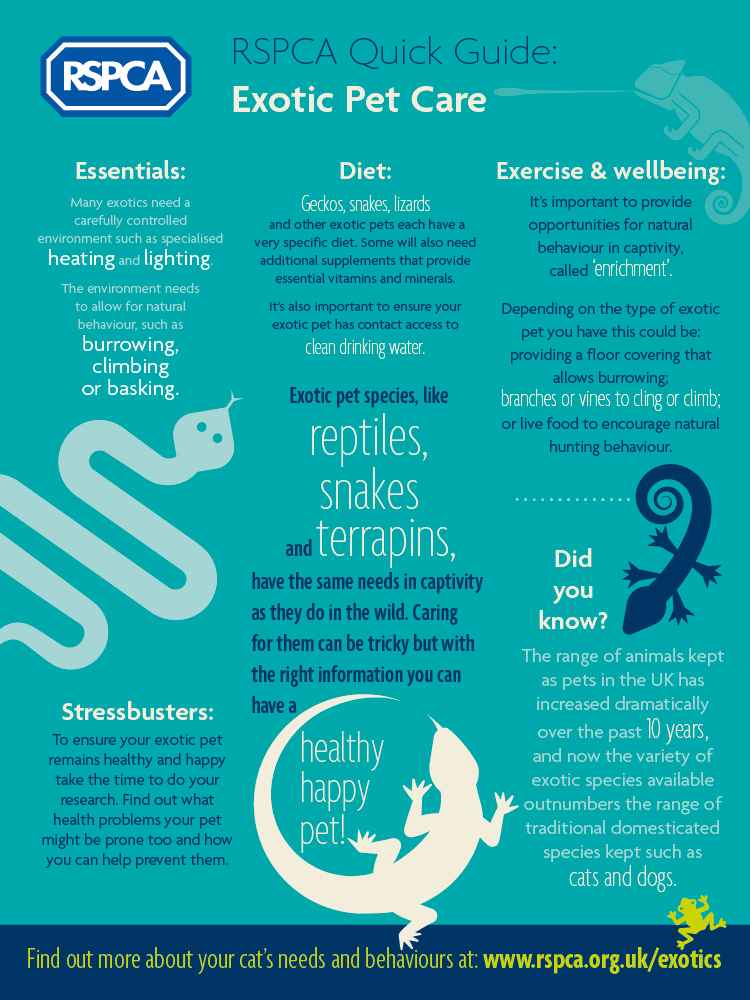RSPCA quick guide to exotic pet care #TropicalChronicals

I am very much an animal person. I have had pets all my life ranging from the more commonplace to the more exotic and bizarre! I am really lucky to have parents who are also animal lovers and I have grown up being allowed to experience so many different species including: dogs, cats, hamsters, budgies, rats, degus, chinchillas, fish, rabbits, guinea pigs, chickens, ferrets, mice, gerbils, snakes, lizards, tarantulas and axolotls.
I am sure a few of the above have you wide eyed and a little freaked out and honestly I understand that not everyone is happy with the idea of holding a rat, snake or tarantula but personally I find learning about these amazing creatures fascinating and I get such satisfaction from caring for them and watching them grow.
Of course the more exotic pets come with their own specialised care needs and not everyone is aware of this when they go to the pet shop to pick up the latest addition to their family. The RSPCA are currently raising awareness for the care needs of these types of pets and I wanted to get behind their campaign as a fellow reptile lover.
When I was younger I always wanted a snake but it was the one thing my parents thought would be too hard to look after. It wasn’t until I met my husband (who had reptiles when I met him) that I realised that caring for a snake isn’t really that hard it just takes understanding of their basic needs such as diet, temperatures, handling etiquette and habitat.
If you are considering getting a reptile, or any exotic pet, please take the time to do some research (the RSPCA has a great advice section), ask experts and prepare well ahead of picking up your snake, lizard or terrapin. Don’t be afraid to ask questions – better you know what you are getting in to than ending up with an animal you just can’t cope with and end up having to re-home.
Here is a fab quick guide to exotic pet care from the RSPCA to get you started:





